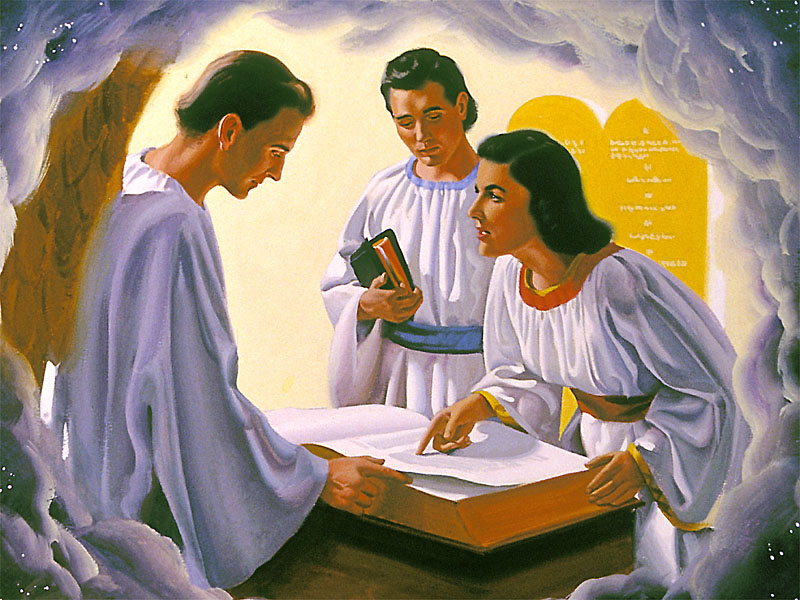Let's do, in Genesis 1 what do you mean?
Código VBCG-E0008-I
VIEW:573 DATA:2020-03-20
In relation to Genesis 1:26 the verb Asah "to do" should be translated in what way, in a pluralized or singular way?

And said H559 God H430 became H6213 man H120
We have a plural connection אלהים H430 {Elohim}, the connection between the plural and the singular אדם H120 {Adaam} is necessary, So there is no way to put the singular form for the pluralized form אלהים H430 {Elohim}. The question is not about נעשׂה H6213 {do {}}, but about אלהים H430 {Elohim}. If we had the placement of the term אל {'el}, the connection term should differ. In other words, the foundation of the theme cannot be on the word נעשׂה H6213 {to do {}}. It occurs because modern languages analyze actions. Ancient languages analyze directly by the subject. It is at the core of the subject that the information in the text is examined. So why did you use the term אלהים H430 {Elohim}, instead of אל {'el}. The analysis of the term נעשׂה H6213 {to do {}}, or as {to do} (term that would describe a leader), of {we will do} (term of determines a choir), becomes extremely inventive. The analysis center of the text could not fall on נעשׂה H6213 {do {}}, because it is stuck in the sense of אלהים H430 {Elohim}, the question falls on what is the term אלהים H430 {Elohim}, and why does this term exist and not just אל {'el}.
A correlation to the term and:
Exo 19: 8 To which all the people answered in a voice: All that the Lord has spoken, we will do. And Moses related the words of the people to the Lord.
The term נעשׂה H6213 {we will do}. related to the term העם H5971 {people}. So is {do}, do {do}? But I will never {do}.
The term נעשׂה H6213 {do {}} is plural, indicates a class, such as העם H5971 {people}, but relative to אלהים H430 {Elohim}, so it is necessary to define what the term אלהים H430 {Elohim} is, to correctly understand the term נעשׂה H6213 { do{}}.
The verb asah is conjugated in the first person plural of the participle of Nif al. For connection with אלהים H430 {Elohim}, not the other way around.
The verse in Genesis does not violate the term in Isaiah:
Isa 44:24 This is what the Lord your Redeemer says, and who formed you from the womb: I am the Lord who does all things, who alone stretched out the heavens, and spread the earth by myself;
When we read the term לבדי H905 {alone}, this term is linked to the figurative term of a city chief, when he builds, for example, a bridge, even using several workers. It is a term that defines a separation, as a piece of the body. In this verse we have יהוה H3068 {YHWH}, and not אלהים H430 {Elohim}. For this there is a different concept for the term לבדי H905 {alone}. While יהוה H3068 {YHWH}, has the term לבדי H905 {alone}, related to chief, אלהים H430 {Elohim}, has the same substantial link formulation as העם H5971 {people}.
Showing that Isaiah 44:24 is not contrary to the term in Genesis.
The term אלהים H430 {Elohim}, is too broad to be examined in a single textual factor. It is necessary to find the connection of the term with a detailed history to understand, what are the inherent points of the term אלהים H430 {Elohim}.
In all cases the term {shall do}, or {do}, is the correct description, in the verse of Genesis 1:26


BUSCADAVERDADE
Visite o nosso canal youtube.com/buscadaverdade e se INSCREVA agora mesmo! Lá temos uma diversidade de temas interessantes sobre: Saúde, Receitas Saudáveis, Benefícios dos Alimentos, Benefícios das Vitaminas e Sais Minerais... Dê uma olhadinha, você vai gostar! E não se esqueça, dê o seu like e se INSCREVA! Clique abaixo e vá direto ao canal!
Saiba Mais
-
 Nutrição
Nutrição
Vegetarianismo e a Vitamina B12 -
 Receita
Receita
Como preparar a Proteína Vegetal Texturizada -
 Arqueologia
Arqueologia
Livro de Enoque é um livro profético?
Tags
divinity, etymology, making, creation, trinity

